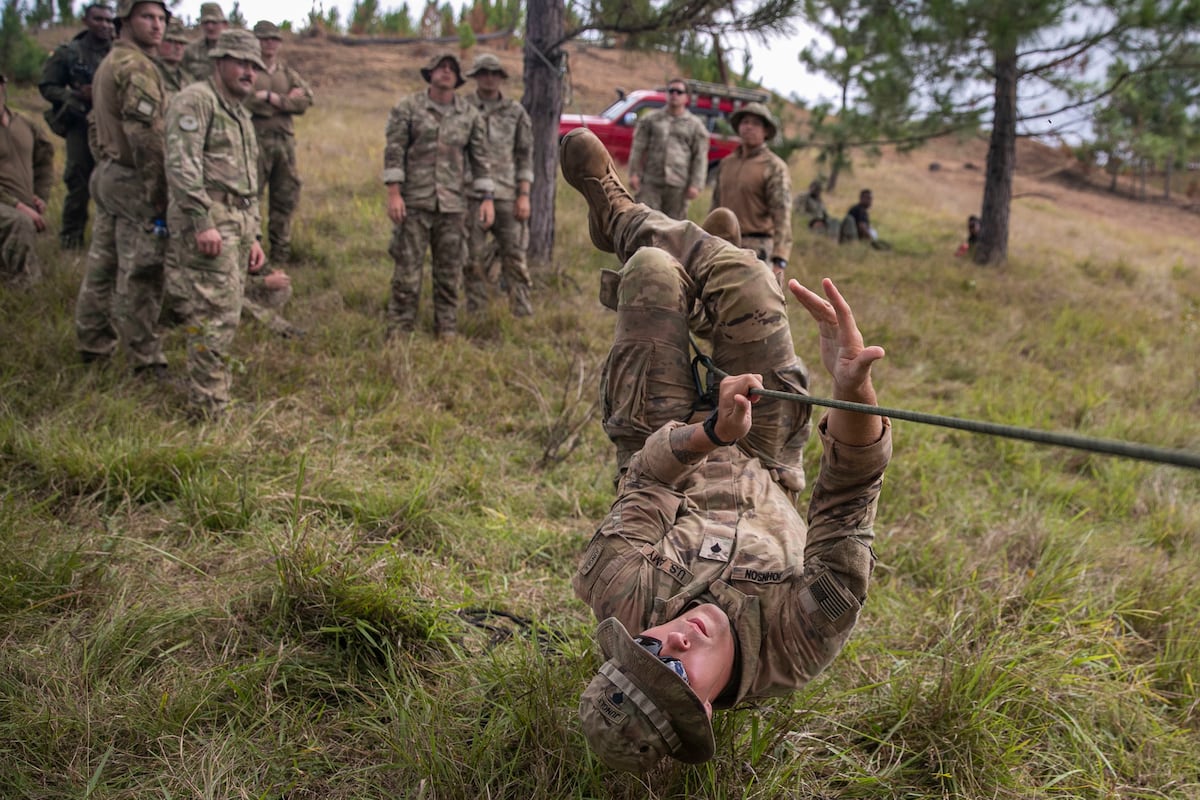The Air Force said Monday it will meet its recruitment goals in fiscal 2024, one year after all components of the service missed the mark for the first time in decades.
And the Air Force is setting an even more ambitious recruitment goal in 2025.
Air Force Recruiting Service commander Brig. Gen. Christopher Amrhein told reporters in a roundtable that the service will hit its goal of 27,100 non-prior service enlisted recruits this year. And next year, he said, the active-duty Air Force wants to recruit 32,500 new airmen — a 20% increase.
“The Department of the Air Force is still hiring,” Amrhein said this week at the Air and Space Forces Association’s Air Space Cyber conference just outside Washington.
Amrhein acknowledged the 2025 goal will be challenging, particularly as the Air Force faces competition for talented young people from the private sector. But he expressed confidence that the service will be able to meet its 2025 goal, in part by adding 377 more personnel to its recruiting ranks.
Before that expansion began, the Air Force had 1,390 recruiters, he said. Some of the 377 airmen the recruiting service is adding will focus on special warfare recruiting, while others will fill support roles, he said.
The first 80 of those new recruiters have already finished training and are hitting the field, Amrhein added, and 20 more are coming in November and December.
At this time last year, the Air Force had about 8,800 new recruits waiting to ship out to basic training, Amrhein said. That number has now grown to 11,000, and is a sign that the Air Force’s recruitment is healthier and more likely to reach its higher goal in 2025, he added.
Many of the new recruiters will be stationed throughout the southern United States, he said, but a few will be assigned to locations in Europe and the Pacific. Additionally, some will be part of a new concept called agile recruiting cells.
Those cells will be made up of two or three recruiters and assigned to squadron headquarters, he said, where they can follow leads or be temporarily surged to areas that need more recruiters.
Amrhein noted that a series of changes to recruiting processes — including reinstating the enlisted college loan repayment program, an accelerated naturalization program, greater use of medical waivers and more lenient policies on tattoos and marijuana — helped the service hit its goal this year.
But the changes do not mean the Air Force has lowered its standards or brought in less-qualified recruits, he said.
The Air Force in January also cut the time non-citizens must hold a green card — from 10 years to two — before they can join, Amrhein said. That change, in conjunction with an accelerated naturalization program at basic military training, has broadened the pool of highly qualified people, he said.
“We’ve had 1,400 folks get accelerated naturalization” at basic training, Amrhein added.
And in 2025, the Air Force wants to further expand opportunities for airmen who are on their way to becoming U.S. citizens, he said. The Air Force is considering allowing recruits who are green card holders to be conditionally selected for jobs that are typically only open to U.S. citizens. Those recruits would then be able to enter their job once they become naturalized, Amrhein said.
The military has also loosened its requirement on how long new recruits have to be off medication for attention deficit-hyperactivity disorder, or ADHD, and reduced the medical reviews that happen for recruits who had childhood asthma, he said.
Amrhein said the Air Force this year started working with the Civil Air Patrol to buttress its recruiting network and encourage more young people to join.
Stephen Losey is the air warfare reporter for Defense News. He previously covered leadership and personnel issues at Air Force Times, and the Pentagon, special operations and air warfare at Military.com. He has traveled to the Middle East to cover U.S. Air Force operations.
Read the full article here








Leave a Reply